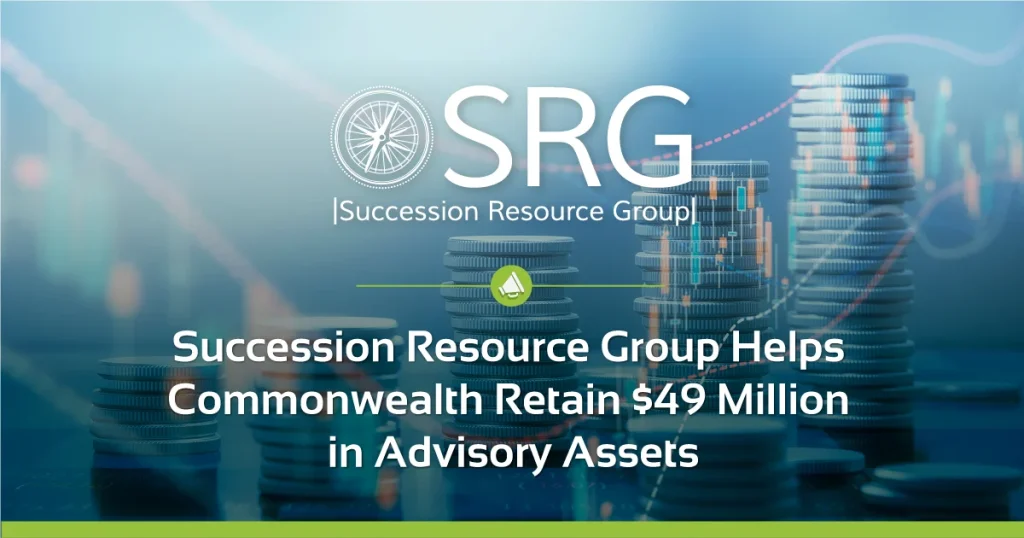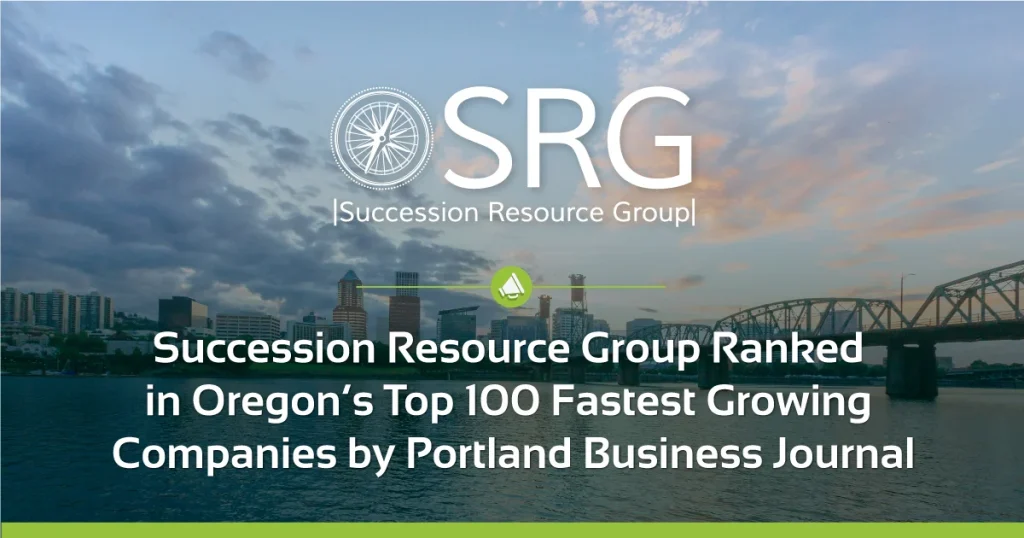Succession Resource Group Announces Sale of Coe Financial Services to Creative Planning

Portland, Ore. (April 9, 2020) – Succession Resource Group (SRG) is excited to announce the sale of Kansas based Registered Investment Advisor (“RIA”) Coe Financial Services, Inc. to Creative Planning, LLC, one of the nation’s largest and fastest growing RIAs led by Peter Mallouk. This sale represents over $126 million in assets under management (AUM), and is the fifth acquisition for Creative Planning in the last year.
Succession Resource Group Provides Free Contingency Agreement to Advisors
PORTLAND, Ore. (April 29, 2020) – During this COVID-19 pandemic, Succession Resource Group (SRG) is committed to bringing awareness to the topic of planning for the unexpected, offering a free contingency plan template to financial advisors during the month of May 2020, to help ensure advisors put a plan in place in the event of their death or disability (permanent or temporary).
Succession Resource Group Announces Sale of Hawaii Advisory Practice

Portland, Ore. (March 13, 2020) – Succession Resource Group (SRG) is announcing the sale of deceased Hawaii advisor, Mr. Glenn Yabuki’s book of business (“Yabuki”) to Gail Hamada and Lincoln Koike of Hawaii Wealth and Legacy Planning Group (“HWLPG”). The sale represented over $97 million in assets under management, with all assets successfully retained by Ameriprise Financial Services, Inc. (“Ameriprise”), allowing Ms. Hamada and Mr. Koike to continue honoring Mr. Yabuki’s legacy.
RIA M&A Decade in Review: 2010-2019

PORTLAND, Ore. (Feb 11. 2020) — Succession Resource Group, Inc. (SRG) is publishing its ten-year retrospective look at the state of the mergers and acquisitions for independent RIAs and advisors, recapping deal data, trends, and predictions for the coming decade. SRG’s data for this period draws upon more than $250 million in third-party transactions and over $20 billion in total assets under management (AUM) transferred1.
Succession Resource Group Announces Sale of Washington DC Area Advisory Practice

Portland, Ore. (Jan. 30, 2020) – Succession Resource Group (SRG) is excited to announce the sale of Ameriprise Financial Services advisor Alan M. Kolnik based in the Washington DC metro area to Jon Kuttin of Kuttin Wealth Management, named a Barron’s Hall of Fame Advisor, 2019. The sale represented over $40 million in assets under management, allowing Kuttin to expand his firm’s presence down the eastern seaboard.
Succession Resource Group Wins 2019 WealthManagement.com Industry Award in Succession/Ownership Transition Services

PORTLAND, Ore. (Sept. 19, 2019) – Succession Resource Group (SRG) is proud to announce it was nominated and won the 2019 WealthManagement.com Industry Award in the category of Succession/Ownership Transition Services for its “Shared Growth Model” strategy, nominated with Financial Advocates and Hamburger Law Firm. SRG was also named a finalist in the category of Industry Research Providers for its “Annual Advisor M&A Update.”
SRG Facilitates Strategic Alliance Between Pension & Wealth Management Advisors and Kastel Capital Advisors, LLC

Portland, Ore. (Sept. 12, 2019) – Succession Resource Group (SRG) is pleased to announce a strategic alliance between two Massachusetts-based investment advisory organizations: Pension & Wealth Management Advisors (PWM) and Kastel Capital Advisors, LLC (Kastel). The alliance will represent a team of five experienced fiduciary advisors managing more than $150 million in assets under management from individual and institutional clients in 22 states.
Succession Resource Group Ranks on the 2019 Inc. 5000 List of America’s Fastest-Growing Private Companies

PORTLAND, Ore. (Aug. 20, 2019) – Succession Resource Group (SRG) is proud to be named as the third largest Oregon company in the financial services industry on this year’s Inc. 5000 list, the most prestigious ranking of the nation’s fastest-growing private companies. SRG joins the ranks of other notable Inc. 5000 honoree alumni including Intuit, Microsoft, Pandora, Patagonia, and Oracle. SRG was also ranked for the second time in the Top 100 Fastest Growing Companies by the Portland Business Journal in 2019.
Succession Resource Group Helps Commonwealth Retain $49 Million in Advisory Assets

Portland, Ore. (Aug. 7, 2019) – Succession Resource Group (SRG) is excited to announce the sale of Washington-based firm Lighthouse Financial Strategies, Inc. (owned and operated by Steven Holmes) to Nate Oeming and Tim Mahalak of The Oeming Group (Oeming-Mahalak). The financial advisory practice sale represented over $49 million in assets under management, with all assets retained on Commonwealth Financial Network’s platform.
Succession Resource Group Ranked in Oregon’s 2019 Top 100 Fastest Growing Companies by Portland Business Journal

Portland, Ore. (July 10, 2019) – Succession Resource Group, Inc. (SRG), a Portland-based succession consulting firm, is proud to be ranked as one of Oregon’s fastest-growing private companies in the Portland Business Journal’s top 100 list, ranking #62. This is the second time SRG has been given this award in the last five years. SRG received the recognition as a result of its continued success, increasing its revenue 77.31% in just the last two years.